Home » Employer Services » Apprenticeships
Apprenticeships
Apprenticeship is a programme of structured education and training which formally combines and alternates learning in the workplace with learning in an education and training centre. The apprenticeship system in Ireland is governed by the 1967 Industrial Training Act. An apprenticeship prepares participants for a specific occupation and leads to a qualification on the National Framework of Qualifications.
An apprenticeship is created when an employer takes on an apprentice and agrees a contract of employment. Apprentices are paid a wage for the duration of their apprenticeship.
Apprenticeships in ATU Sligo
ATU, in partnership the Civil Engineering Consortium, have developed two apprenticeships in Civil Engineering at levels 6 and 7.
Higher Certificate in Civil Engeineering– 2 year programme
Bachelor of Engineering in Civil Engineering – 3-year programme
Apprentices will commence each year of study with a one week residential on campus with their designated provider where they will conduct a series of project-based learning and team building exercises. The apprentices will then study online one day a week, with an additional day per month on campus to carry out workshops/labs. A core element of the apprenticeship will be the practical on-the-job work experience, which will enable them to test their knowledge, and enhance their skillset.

The structure of the programme consists of three terms per annum comprising of two academic terms of 15 weeks duration and one summer term of 20 weeks duration).
Some of the topic’s apprentices will study include Building Information Modelling, Engineering Graphics & Computer Aided Design, Surveying, Civil Engineering Materials, Mathematics, Structural Analysis and Design, Geotechnical Engineering, Road and Transport Engineering, Hydraulics and Environmental Engineering. Apprentices will be assessed using a combination of continuous learning methods (reflective journal, multiple choice quizzes, case studies etc.) in addition to end-of-semester exams.
Apprentices will have the support of a work-based mentor who will guide and coach them throughout their studies. Mentors will receive training to help them to provide the support their apprentice needs.
Read more about the apprenticeships here
To find apprentice jobs please click here
ATU Sligo is the co-ordinating provider of the BA (Hons) in Insurance Practice with the Insurance Institute as its Industry partner.
Apprentices will study online from their place of work one day a week. A core element of the apprenticeship will be the practical on-the-job work experience, which will enable them to test their knowledge, and enhance their skillset.
The structure consists of nine semesters in total (three per annum consisting of two academic of 15 weeks duration and 1 summer of 20 weeks duration). The off-the-job release averages one day per week with the first semesters in Year 1 & 2 at 1.5 and the third semester at 0.5.
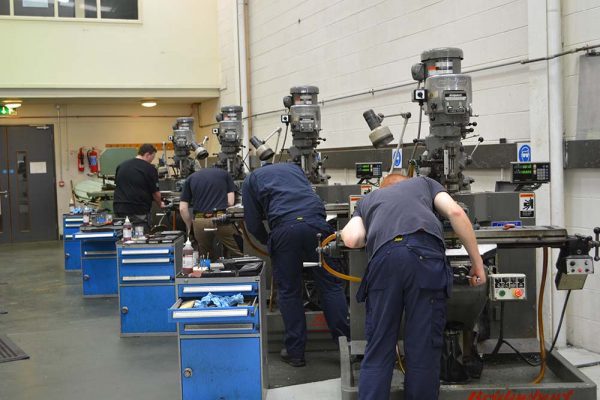
The Insurance Institute exams
The Insurance Institute exams are blended with the business and personal skills modules captured from the Industry Steering Group competency framework ranging from basic in year 1 to more advanced in year 3 finishing with a Capstone project/Dissertation which will facilitate collaboration across both Industry and apprentices. APA is frontloaded in Year 1 to meet CBI minimum compliance requirements and to ensure removal of supervision early in accordance with Industry request. CIP is achieved in Year 2. This will facilitate focus in the final year on the Capstone Project/ Dissertation.
The Insurance Institute examinations will form the basis of the insurance modules and will be tested via the current formal examination practice and timetable. The module content is expanded beyond the additional 5 credits at level 7 to 10 credits. This expansion will allow an applied industry focus to the curriculum via work based case studies and certain modules will have the level of their content enhanced to provide level 8 modules in insurance.
The business and personal skills will be tested by ATU Sligo using continuous learning methods (reflective journal, mini project etc) in addition to end of semester tests. The combined ATU Sligo/The Insurance Institute delivery will be a blend of online lectures/tutorials streamed live on the same day each week, online discussion/ engagement and face to face teaching in the work place with supervisors/mentors together with provision for two group sessions per semester.
Each student will also be required to complete 7.5 hours of personal study. The programme will be 75% delivered by the Employer with 25% delivery by ATU Sligo/ The Insurance Institute – the alternance model is typically one to one and half day a week release (depending upon semester) in the Employer premises away from the desk (where practical).
The Insurance Practitioner apprenticeship will prepare students for one or more of the following roles in insurance.
- Direct Client Advice
- Under Writer
- Claims Specialist.
For further information on companies currently recruiting apprentices please click here.
If you are an employer in the insurance industry, further information can be found on this PDF.
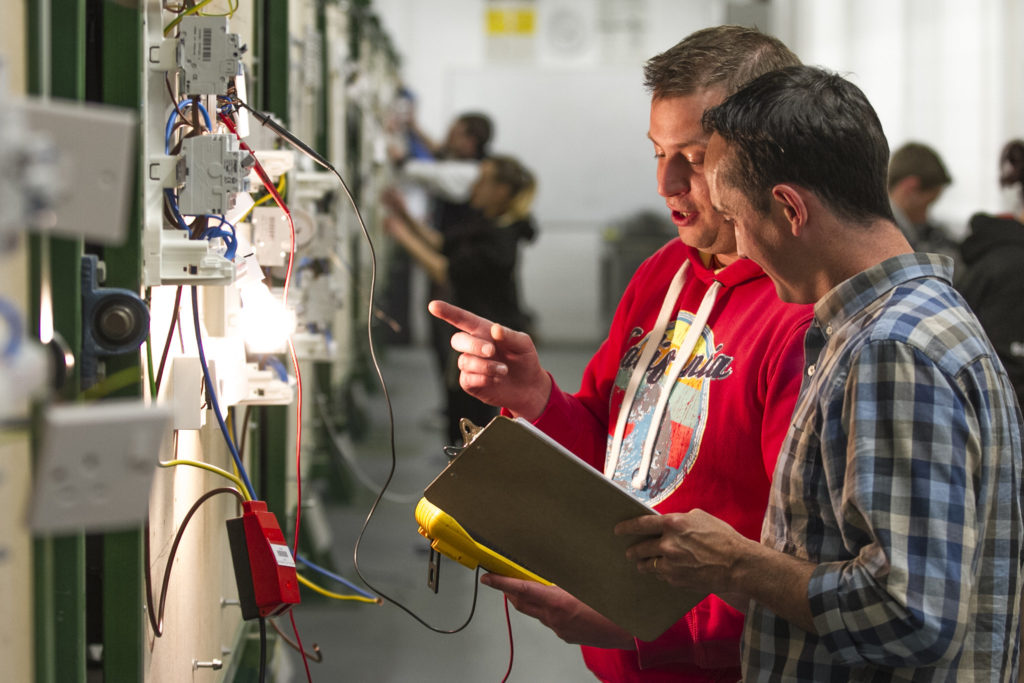
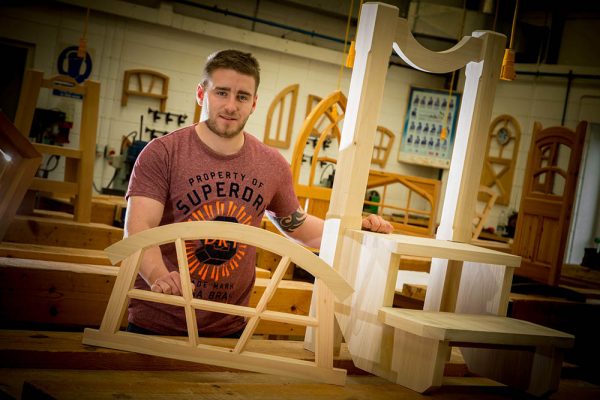
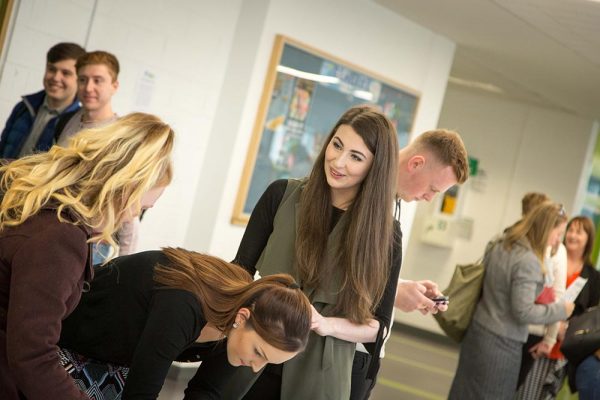
Transport operations and commercial driving
ATU Sligo is the co-ordinating provider of the Transport Operations & Commercial Driving Apprenticeship with the Freight Transport Association Ireland as the industry partner.
The Transport Operations and Commercial Driving Apprenticeship provides the academic qualification, practical training and work experience that supports a vibrant and exciting career in the freight distribution and logistics sector. Apprentices will receive expert driving lessons and training in advance of completing their C / CE driving test and attaining the Driver CPC qualification. On successful completion of the programme, apprentices will also receive a Higher Certificate in Business in Transport Services.
This programme consists of four semesters over two years and apprentices will study online from their place of work one day a week during term time. There will also be the option to attend two face-to-face group sessions per semester. Additionally, each student will be required to complete a minimum of 8-10 hours of personal study per week.
Some of the topics apprentices will study include Personal effectiveness and ICT skills, Supply chain management and Warehousing, Principles of professional driving, Customer care, Finance, Driver Health and Safety. Apprentices will be assessed using a combination of continuous learning methods (reflective journal, multiple choice quizzes etc.) in addition to end-of-semester exams.
Apprentices will have the support of a work-based mentor who will guide and coach them throughout their studies. Mentors will receive training to help them to provide the support their apprentice needs. For more information on the programme for apprentices or employers please click here.
For further information on companies currently recruiting apprentices please click here.
ATU Sligo and trades
ATU Sligo also provides training in the following trades.
What is an Electrician?
The Electrician is involved in the installation, commissioning, testing and maintenance of various wiring systems and services in domestic, commercial and industrial applications. Work ranges from wiring of domestic houses and retail units to more complex systems involving process control and maintenance in industrial plants, hospitals and power stations. Electricians also service, maintain and repair electrical equipment, both domestic and industrial.
Electricians employed by the Electricity Supply Board (ESB) engage in electrical power supply and distribution. Electricians employed by electrical contractors are usually engaged in the installation of lighting, heating and power equipment and the repair of existing equipment and appliances. Those in industrial employment are generally engaged in the maintenance and repair of factory plant, machinery and generating equipment. Electricians require many skills including:
- Knowledge of scientific principles
- Performing general electrical installations
- Interpreting technical drawings and specifications
- Planning and organising the installation of electrical systems
- Inspecting and testing of electrical systems and fault diagnosis
- Performing routine maintenance and repairs on electrical systems
- Knowledge and application of Health and Safety Procedures.
What is a Carpenter and Joiner?
The Carpenter and Joiner cuts, shapes and joins wood and wood based products using a wide range of hand tools, eg hammer, saw, planes and chisels. They also use power tools and machines. Carpenters and Joiners use their skills to set out and construct roofs, install floors, stairs and window, built-in furniture and hang doors. They also manufacture doors, windows, stairs and shopfronts, etc.
The Carpenter and Joiner has to study drawings, perform craft calculations and select materials to meet design requirements. Site work includes the construction of buildings and houses which require first and second fixing, including roofing. The place of work may vary, depending on the type of work done could be on site, in a workshop or in a private dwelling. Carpenters and Joiners require many skills including:
- Working with a variety of specialised hand and power tools
- Knowledge of setting out, production and assembly of joinery, which includes stairs, doors, windows, floors, roofs and built-in furniture.
- Interpreting technical drawings and specifications
- Planning and organising work schedules
- Liaising with other Craftspersons
- Knowledge of and working to Health and Safety requirements
ATU Sligo is a part of the Manufacturing Engineering Apprenticeships Programme which combines excellent educational qualifications with special on the job training and ensures work-ready people graduate from this programme. Representatives from across the manufacturing industry developed these programmes, so it is designed to meet the needs of organisations both large and small.
What is a Toolmaker?
A Toolmaker is a skilled worker who produces and maintains precision tools used in the production of metal, plastic and other materials of all shapes and sizes. The work of a toolmaker involves interpreting drawings and technical data to machine and assemble jigs, fixtures, moulding tools, dies and punches. Care and attention to detail and high precision are the hallmark of toolmaking.
Toolmakers work to high specifications and quality requirements to produce machine tools used in manufacturing. Manufacturing industries use the tools to make a diverse range of parts and products. Toolmakers also make moulds to form shapes, jigs to guide cutters or hold a part in place, and dies, which are shaped blocks that are used to cut, stamp or press materials. Toolmakers require many skills including:
- Accuracy with measurements and calculations
- Ability to interpret engineering drawings to plan the production of a given part or product in accordance with manufacturers specifications.
- Operating a range of milling and boring machinery, lathes and CNC equipment in the manufacture of parts and products based on the drawings specified
- Assembling of manufactured parts ensuring correct and accurate assembly of finished components.
- Use of a range of hand and power tools
- Testing finished product and assessing for accuracy in accordance with specified drawings.
- Implementing all relevant health and safety legislation in their work practices
- Use of manufacturing machinery and measuring equipment
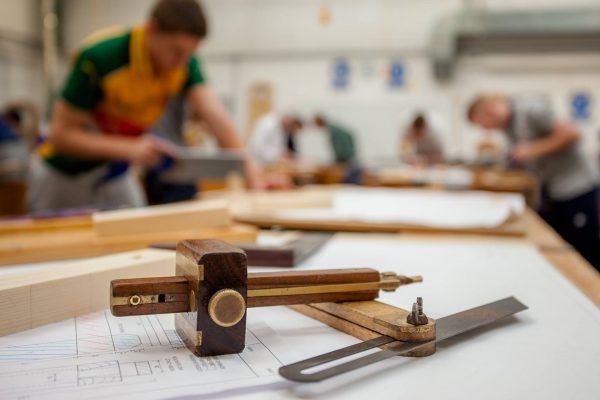
Rules and regulations around apprentices
All apprentices apply through https://apprenticeship.ie/.